‘Better Late than Never’ is a phrase that applies in most situations in life and is understood positively … but, not so for the aggressive pancreatic cancer!
A silent killer, pancreatic cancer is one of the deadliest cancers known. It ranks only as the 12th most common cancers diagnosed worldwide but is the 7th most deadly cancer¹ and has a poor prognosis with a 5-year survival rate of just 5 - 10%.²
The Global Cancer Observatory 2020 (Globocan) report by World Health Organization showed that Malaysia had a total of 1,089 new cases of pancreatic cancer and 1,066 deaths in 2020. The prevalence stood at about two persons in 100,000 persons.³
The lower survival rates are mainly due to the fact that detection and diagnosis of pancreatic cancer occur at an advanced stage of the disease when treatment options are limited and surgery is no longer an option.
Despite such a grim outlook, there is still a possibility for cure, if detected and treated early.
As such, preventive and early detection cannot be over emphasised as it is integral to a patient’s journey and health outcomes.
In response to this scenario, Servier Malaysia and the National Cancer Society Malaysia (NCSM) have joined hands to escalate awareness on the urgency for a proactive and timely approach to pancreatic cancer management.
Speaking at the launch of the pancreatic cancer educational awareness programme themed, TOGETHER, WE ARE STRONGER … Supporting Each Other through Pancreatic Cancer, Dr. Kshitij Panse, General Manager, Servier Malaysia, said, “This pancreatic cancer awareness programme aims to highlight the importance of early detection and intervention while pointing patients and their families to services and support that can help them embrace the challenges of living with this devastating disease.
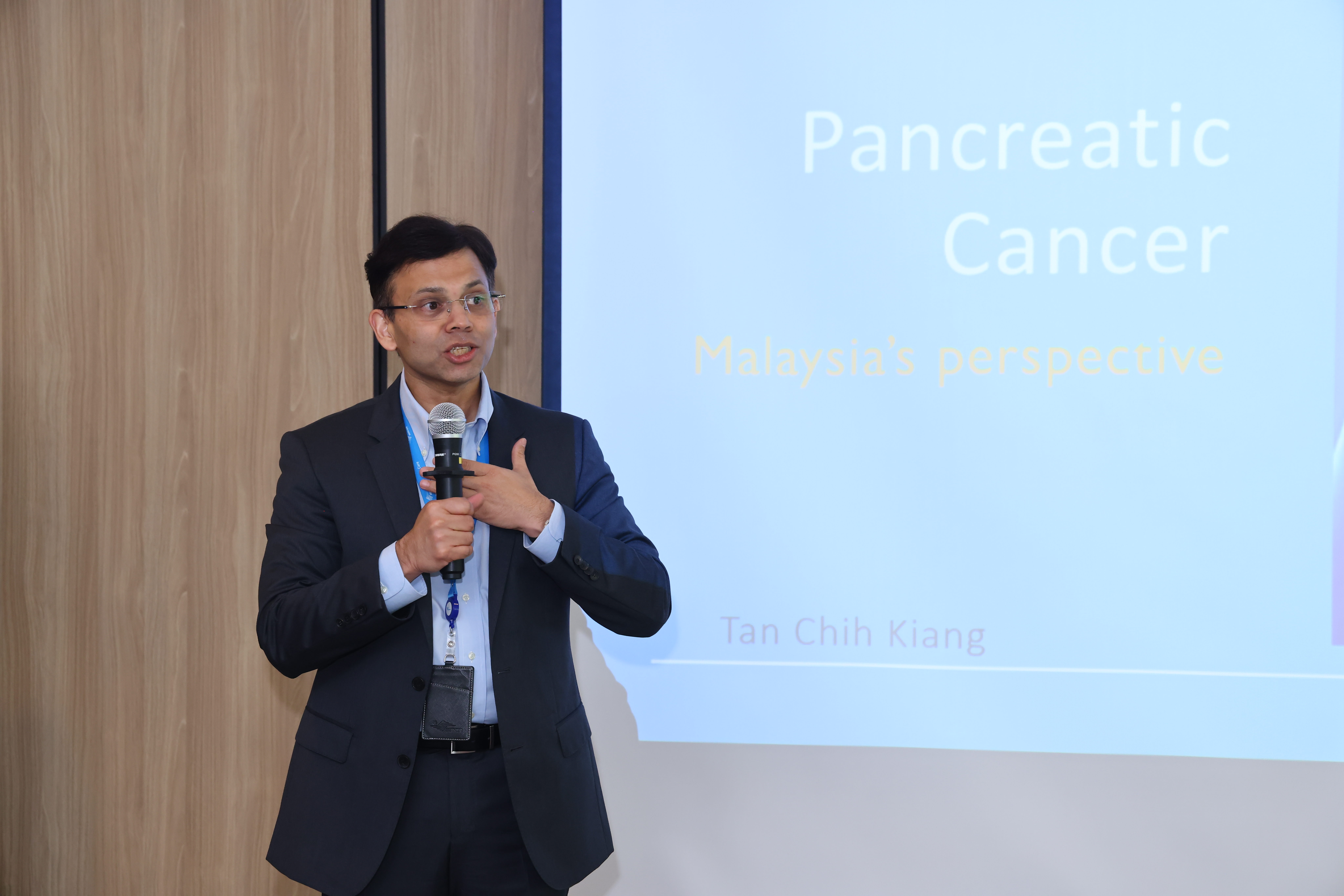
“It aligns well with Servier’s focus to always place patients’ voice and needs at the heart of all our activities, from research and development to community programmes.
“Our collaboration with healthcare professionals to educate and enhance public knowledge about this disease is complemented by NCSM’s psychosocial support services that is available for both patients and their families.
“While the journey for patients and their caregivers is a tough one, we can be stronger to face the challenges when we stand together,” he echoed.
In his presentation, Consultant Clinical Oncologist, Dr Tan Chih Kiang, explained, “Pancreatic cancer is a type of cancer that originates from the pancreas, a vital organ located between the stomach and liver. It occurs when abnormal cells in the pancreas multiply uncontrollably, forming a tumour.”
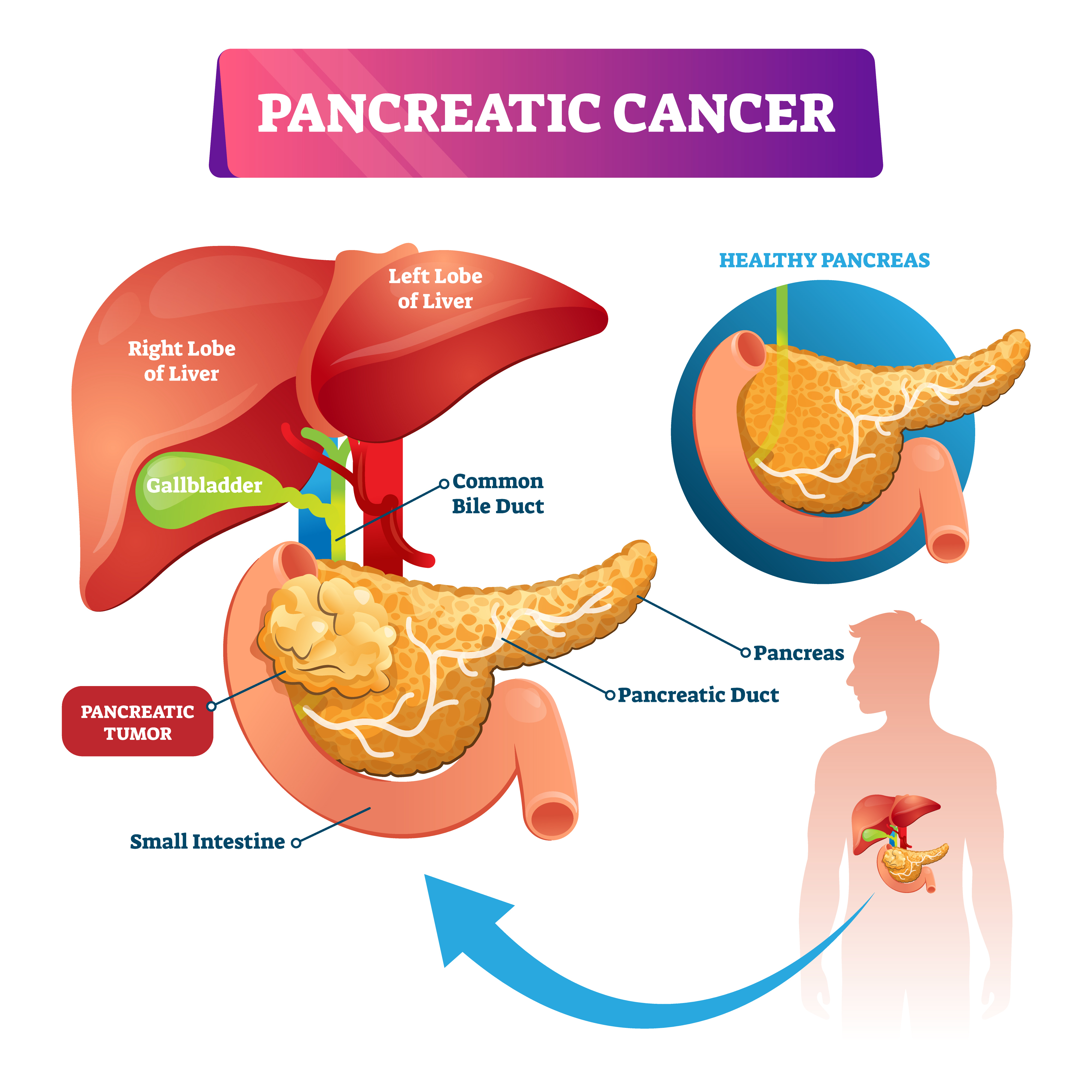
“Generally, pancreatic cancer affects more males above the age of 50. Risk factors include diabetes, smoking, alcohol consumption, obesity and family history of cancer. If someone persistently experiences symptoms such as abdominal or mid-back pain, jaundice, nausea, unintended weight loss, and digestive problems, it is advisable to consult a doctor who may conduct imaging or diagnostic tests to ascertain the cause.
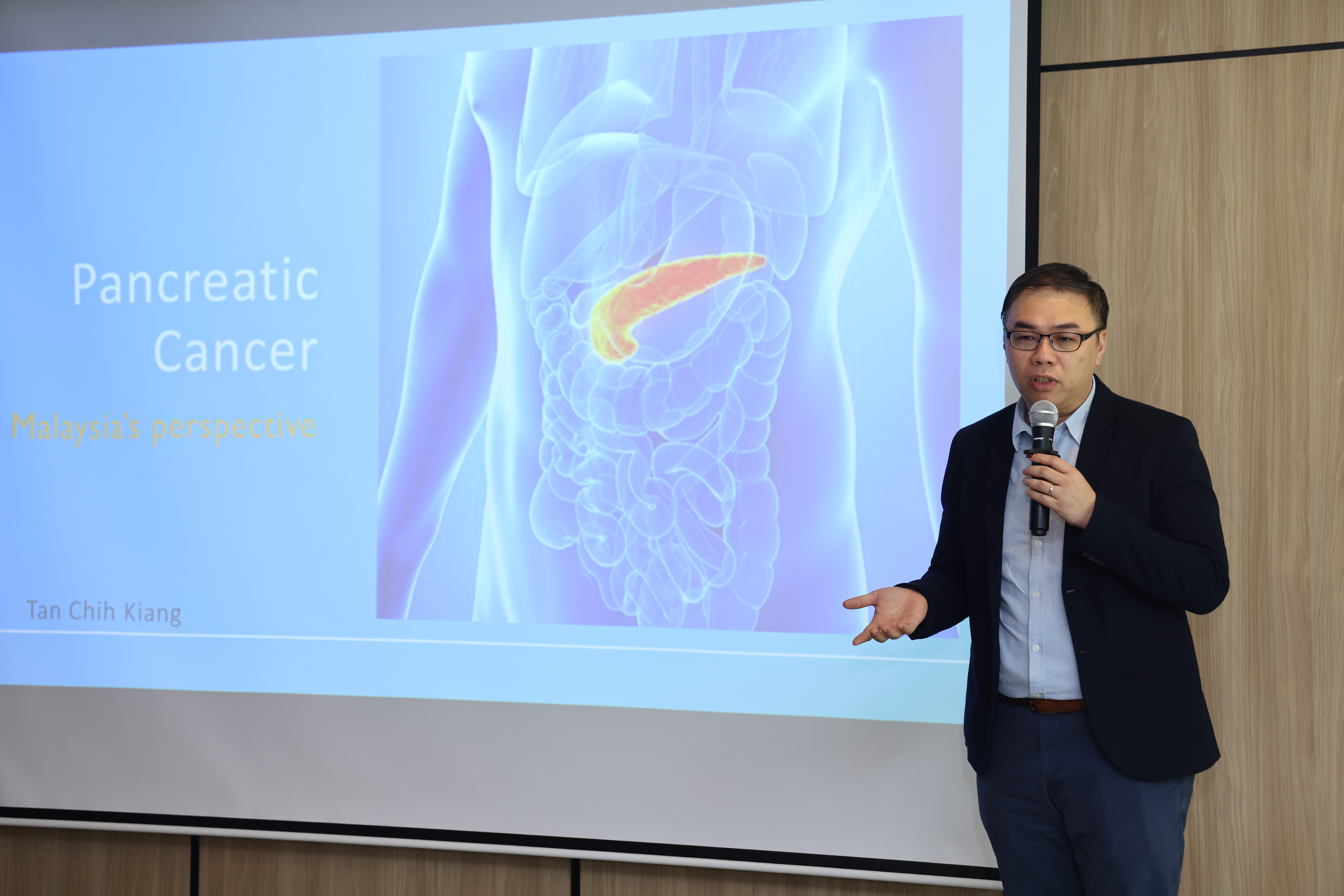
“As these symptoms are common and vague, a case of pancreatic cancer can often go unnoticed or is mistaken for a less severe condition. This makes early detection challenging, leading to delayed diagnosis, limited treatment options and lower survival rates.
“Treatment options for pancreatic cancer, depending on the stages of the cancer, include surgery, systemic therapy such as chemotherapy and targeted treatment, radiotherapy; as well as palliative and supportive therapy,” he added.
NCSM’s Managing Director, Dr Murallitharan Munisamy shared, “Living with pancreatic cancer can be overwhelming and energy sapping. It can have a devastating impact on the patient, their caregivers and loved ones. This is where NCSM can step up to play an important supportive role. We are here to tell them that they need not walk this journey alone. We are here for them.
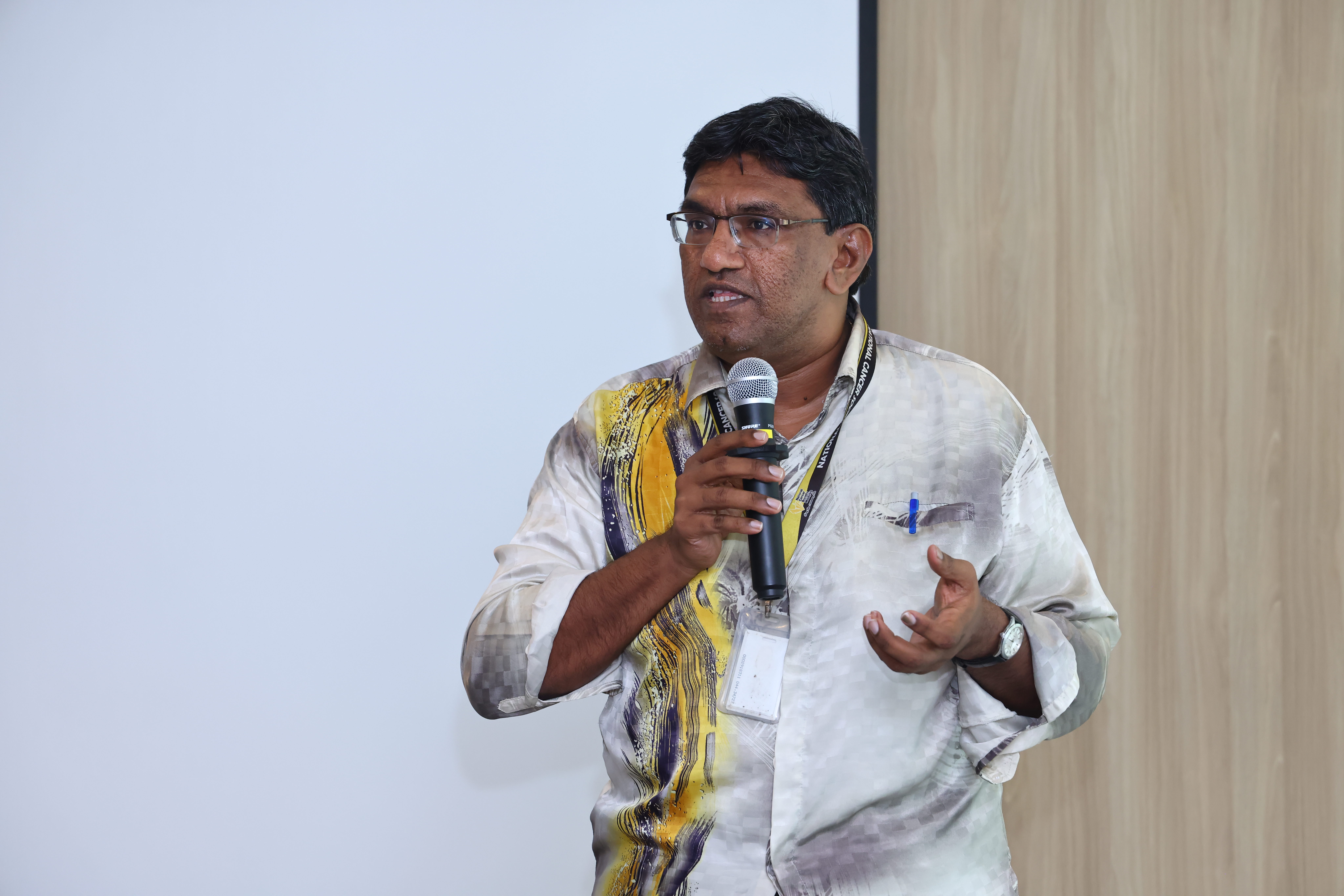
“NCSM’s clinical psychology and multi-disciplinary support services cover the physical, emotional and mental needs of both patients and their families. The services are available from the point of cancer diagnosis up to survivorship stage. It encompasses a wide range of areas, including, emotional support, coping strategies, anxiety and depression management, grief and loss, dietary and nutritional advice as well as guidance to improve their overall quality of life.
“We invite anyone suffering from pancreatic cancer to reach out to us on our toll-free helpline 1800-88-100. Our overarching aim is to empower patients and their families to stay strong as they support each other and walk the journey together,” he said.
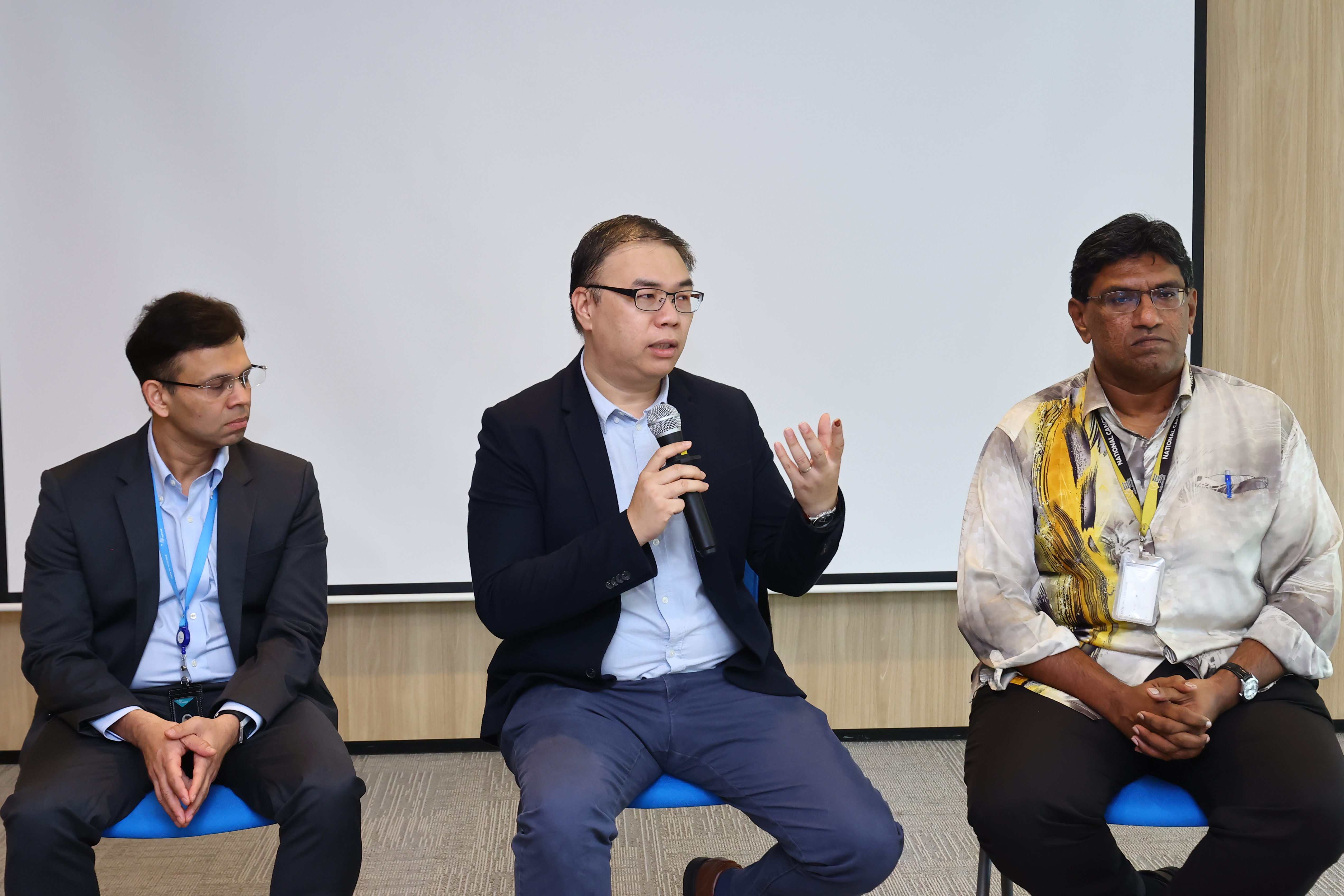
In one unified voice, Dr. Kshitij, Dr. Tan and Dr. Murallitharan strongly urged the public to be observant of any change in their wellbeing and to always adopt a proactive approach to seek the advice of a doctor and to get treated early. It is also essential to practice a healthier lifestyle and make the necessary lifestyle modifications.
If anyone is suffering from pancreatic cancer, reach out and get help beyond medical treatments. Seek support for your physical, emotional and mental wellbeing too. The journey is made so much easier when we walk together.
Together, We Are Stronger… Supporting Each Other Through Pancreatic Cancer.
References:
This content is provided by Servier Malaysia

